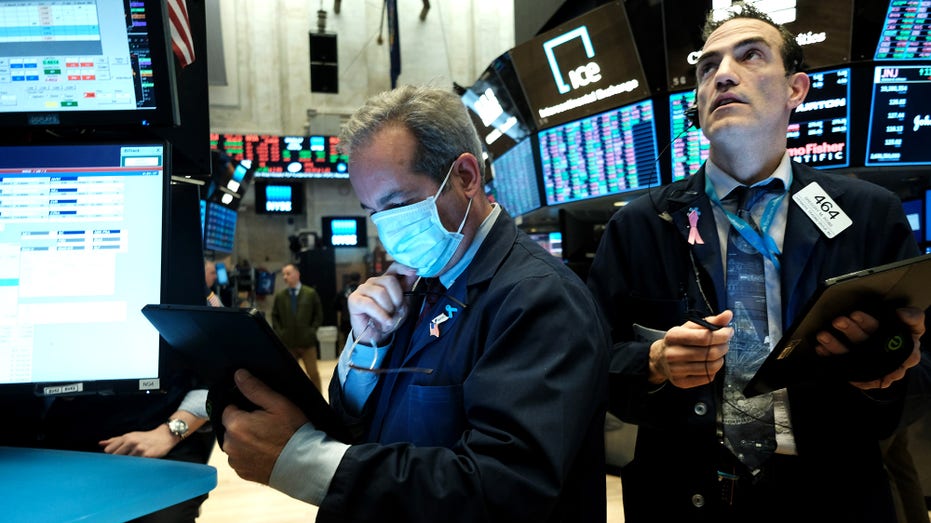US, Asian shares mostly higher as chances of coronavirus stimulus get Trump boost
President Trump reverses course, seeks airline package
TOKYO — Asian and U.S. shares were mostly higher on Thursday on optimism U.S. stimulus may be coming after all, as President Donald Trump appeared to reverse his earlier decision to halt talks on another economic rescue effort.
Japan's benchmark Nikkei 225 added nearly 1.0% to 23,651.55 in afternoon trading. South Korea's Kospi gained 0.4% to 2,396.57. Australia's S&P/ASX 200 jumped 1.1% to 6,102.20. Hong Kong's Hang Seng fell 0.7% to 24,075.66. Trading was closed in Shanghai for a holiday.
Shares rose in India and Taiwan but fell in Singapore.BLUE WAVE HEIGHTENS ANTITRUST THREAT TO BIG TECH
Riki Ogawa of Mizuho Bank in Singapore noted that considerable uncertainty remains, given the “rollercoaster” swings in investor mood in response to signs from Trump about the stimulus.
“The on-and-off nature of the fiscal stimulus discussion in the U.S. hardly inspires lasting confidence,” Ogawa said, noting such uncertainty will continue through the presidential election campaign, and perhaps even after the vote.
The S&P 500 climbed 1.7% to 3,419.45 after Trump sent a series of tweets late Tuesday saying he’s open to sending out $1,200 payments to Americans, and to limited programs to prop up the airline industry and small businesses.

Asian shares were mostly higher on Thursday on optimism U.S. stimulus may be coming after all, as President Donald Trump appeared to reverse his earlier decision to halt talks on another economic rescue effort.
(Photo by Spencer Platt/Getty Images)
The tweets came just hours after Trump sent the market into a tailspin with his declaration that his representatives should halt talks with Democrats on a broad stimulus effort for the economy until after the election, saying House Speaker Nancy Pelosi had been negotiating in bad faith.
The stakes are high, as economists, investors and the chair of the Federal Reserve all say the economy needs another dose of support following the expiration of weekly jobless benefits and other stimulus Congress approved earlier this year.
TIGHT SENATE RACES MORE IMPORTANT FOR STOCKS THAN PRESIDENCY: ANALYSTS
The Dow Jones Industrial Average gained 1.9%, to 28,303.46. The Nasdaq composite climbed 1.9%, to 11,364.60, despite a call by Democratic lawmakers for Congress to rein in Big Tech companies that dominate it and other indexes.
The proposal, which follows a 15-month investigation by a House Judiciary Committee panel, could make it harder for Amazon, Apple, Facebook and Google's parent company to acquire other companies and impose new rules to safeguard competition.
Still, much of the market’s attention remains fixed on the prospects for more stimulus for the economy from Washington.
Airlines jumped to some of the day’s bigger gains after Trump singled out the industry, asking Congress to “IMMEDIATELY” approve $25 billion for them. The S&P 500 rose broadly, with technology stocks making the biggest gains. Other areas that would benefit most from a strengthening economy were also climbing, including retailers and travel-related companies.
Smaller stocks also rose more than the rest of the market, an indication of rising optimism about the economy’s prospects. The Russell 2000 index of small-cap stocks climbed 2.1% to 1,611.04.
The 360-degree spin for Wall Street in less than 24 hours is just the latest bump in its shaky run since early last month. Investors are also worried about whether the continuing pandemic will lead governments to put more restrictions on businesses. Tensions between the United States and China are still simmering.
CLICK HERE TO READ MORE ON FOX BUSINESS
In energy trading, benchmark U.S. crude added 6 cents to $40.01 a barrel in electronic trading on the New York Mercantile Exchange. Brent crude, the international standard, gained 14 cents to $42.13 a barrel.
The U.S. dollar inched down to 105.96 Japanese yen from 105.98 yen late Wednesday. The euro cost $1.1764, up slightly from $1.1762.
___
AP Business Writers Stan Choe, Damian J. Troise and Alex Veiga contributed.




















